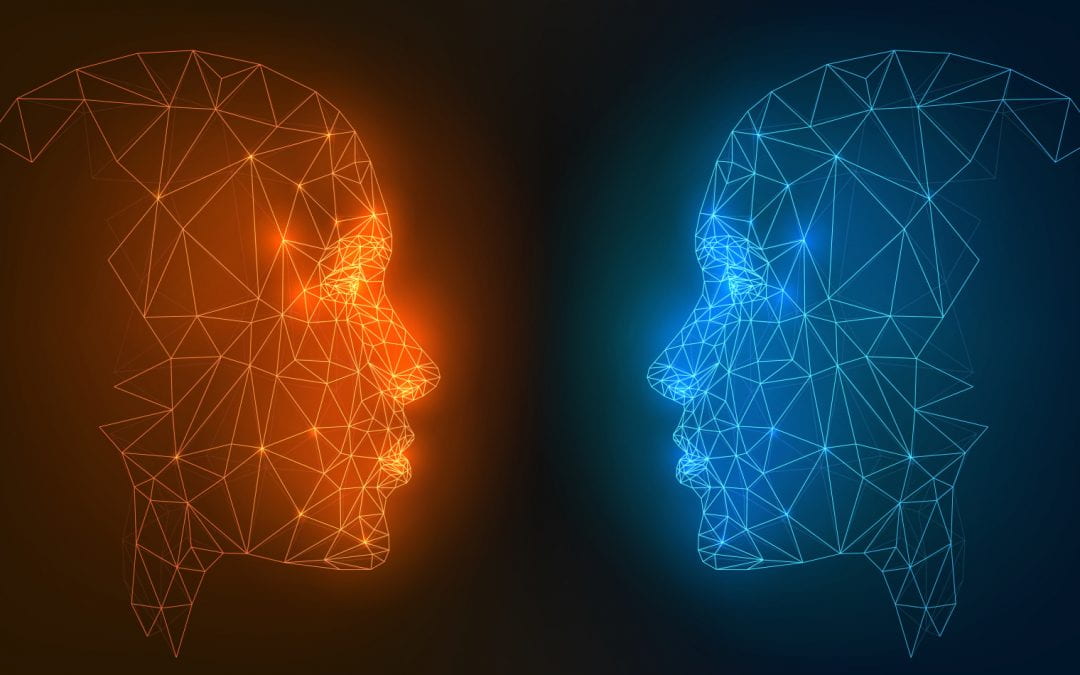Using artificial intelligence (AI) to revolutionize the educational experience is not a new idea: back in 2012, OnlineUniversities.com, a US blog specializing in further education, offered a list of 10 ways in which AI can reinvent education. Back then, though, solutions such as individualized teaching, automated grading and virtual tutors were still ideas in the making. Fast forward to today, and machine learning, big data and virtual assistants are starting to have a real impact on educational processes. In 2016, Georgia Tech Professor Ashok Goel created a virtual assistant capable of answering his students’ questions. France’s emlyon business school has teamed up with IBM to develop a big data-driven employability assistant. The examples go on. What is certain is that AI has already had three effects. It is changing the skills that companies want. It is changing teaching content. And it is revolutionizing teaching approaches. Read on to take a deep dive into the new world of “augmented” education
AI is disrupting the world of work

In health, AI is starting to outperform human radiologists. Driverless vehicles are going from strength to strength — you can even use them to go shopping. The banking and HR sectors are automating more and more low value added tasks, while the French Post Office has added AI to its hiring processes.
The gradual adoption of AI is accelerating changes in the skills required of workers, a point underlined in a report entitled “Skill shift: Automation and the future of the workforce” published by McKinsey in May 2018. As interactions with ever smarter tools, machines and programs increase, the labor market is going to have greater need of advanced tech skills to manage and design AI-related programs. But it will also need social and emotional skills, which are hard, perhaps even impossible, to automate but which are vital to a harmonious relationship with technology. In short, man-machine interactions are at the heart of the strategic discussions in this area. Higher education therefore faces the key challenge of identifying the jobs of the future to make sure that students are as ready as they can be. But to do this will require a rethink of teaching programs.
Teaching AI

When we think about teaching AI, tech skills come first to mind. Unsurprisingly, this area was a primary focus of proposals by French deputy Cédric Villani in March 2018. One of his suggestions was to set up top-level research centers to prevent wealthy international tech giants from luring away the country’s best and brightest and avoid losing more brilliant thinkers like Yann LeCun, an AI specialist regarded as one of the fathers of deep learning, who left France in 2013 to lead Facebook’s AI lab.
Engineering schools are also getting in on the act by setting up specialized programs, such as the new academic and research chair in artificial intelligence created by Google and École Polytechnique. As mentioned above, though, tech on its own is not enough: you also have to be able to nurture social and emotional skills, which can’t be automated. Put another way, and taking the perspective of a management school, the challenge, says Renaud Champion, director of emerging intelligences at emlyon business school, is to find ways to “train the managers of the future in the new approach to corporate governance”. This is the idea behind the school’s brand-new Master’s Degree in Digital Marketing & Data Sciences, which will be on offer to students from the start of the 2018/19 school year.
But AI is also a research field in its own right and cannot be left solely to the mathematicians. Shifts in business models driven by artificial intelligence (how do you use a product that you don’t understand?), the ethical and sociological questions raised by algorithms, and the changing position of managers are all issues that courses are gradually taking on board. Moreover, these disciplines are not mutually exclusive: in fact, to really get a handle on the challenges, a hybrid, multidisciplinary approach makes sense. “Learning Python programming basics might let you open up the black boxes, but you also need to be able to showcase your knowledge and make something of your great idea”, observes Renaud. He says that, ideally, students should come out of their training with a different kind of composite skillset that allows them to really grasp the challenges and respond to business needs. As he points out, there’s a reason why, for the first time, emlyon business school recruited students with advanced math backgrounds for the start of the 2018/19 school year. Likewise, joint diplomas from engineering and management schools are on the rise.
How AI is impacting teaching approaches
The artificial intelligence itself may not have been very sophisticated, but the example was a striking one. In 2016, Ashok Goel, a professor at the Georgia Institute of Technology in the USA, conducted an experiment with his students. Before the semester got started, he imagined all the usual questions that his students might ask, plugged them into a database, and programmed a virtual assistant. He called his assistant Jill Watson and presented her to his students without revealing her nature. For the entire semester, Jill Watson answered the questions asked by students, from what to revise on the next exam to bibliographic queries. Almost without exception, the students didn’t notice. This was the first-ever virtual teaching assistant, but their numbers look set to increase in the coming years, because they relieve teaching staff of the most repetitive tasks, allowing them to focus on research and teaching. Virtual assistants also come with a key advantage: they are non-judgmental, which may make struggling students less reluctant to come forward.
Big data is at the forefront of another AI-led revolution. Already used by Amazon and e-commerce firms to tailor their offers, AI and machine learning are being used to adapt teaching to meet the needs and pace of individual students. By analyzing student behavior in virtual classes, test and examination results and knowledge assimilation, adaptive learning can offer personalized solutions, such as those developed by Lalilo (literacy) and Domoscio (lifelong education). It is also the idea behind the new learning ecosystem set up by emlyon business school in partnership with IBM. And this is just the start. Automatic rating and feedback systems are also in the pipeline and will go even further towards freeing up useful time for teachers and students alike.

